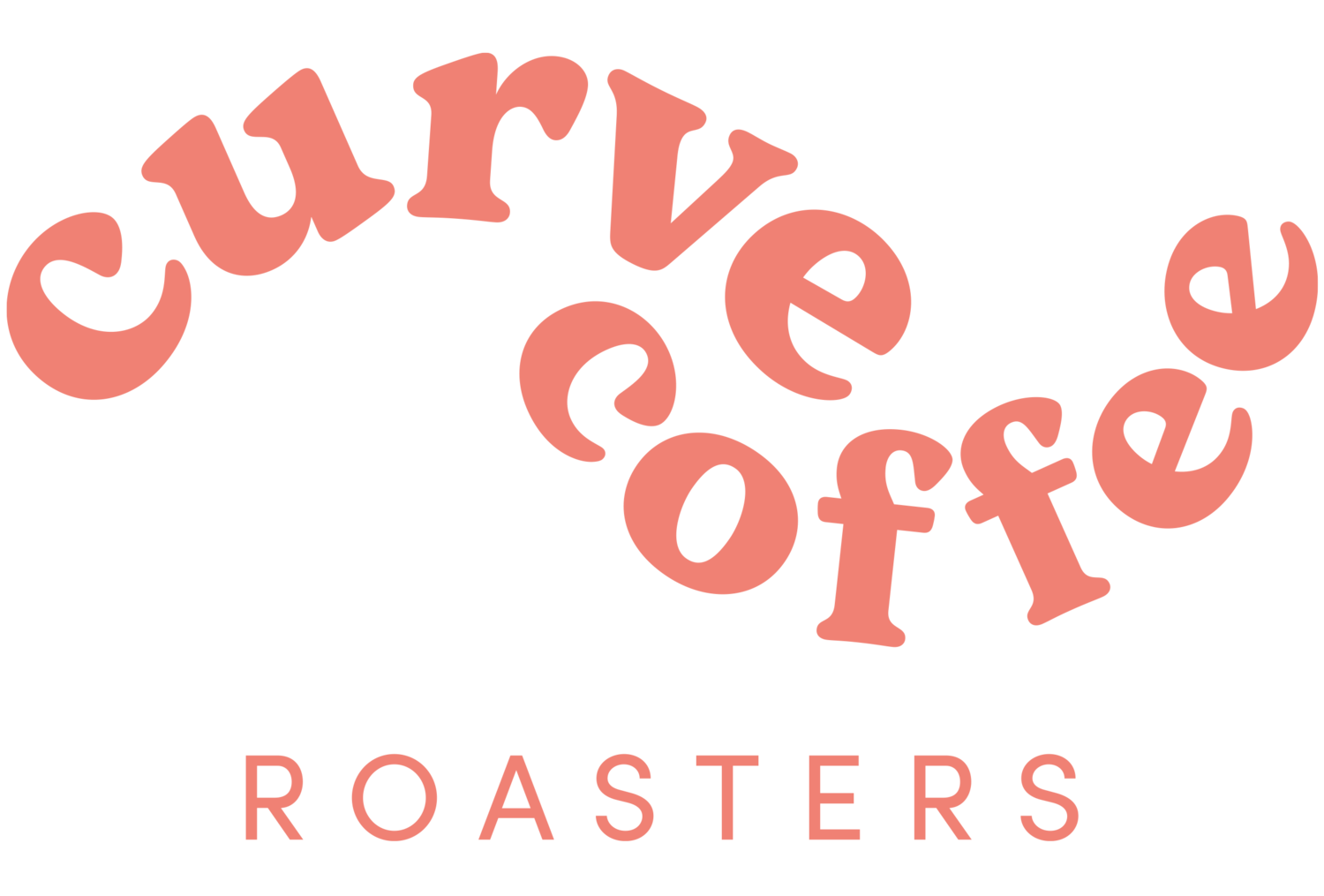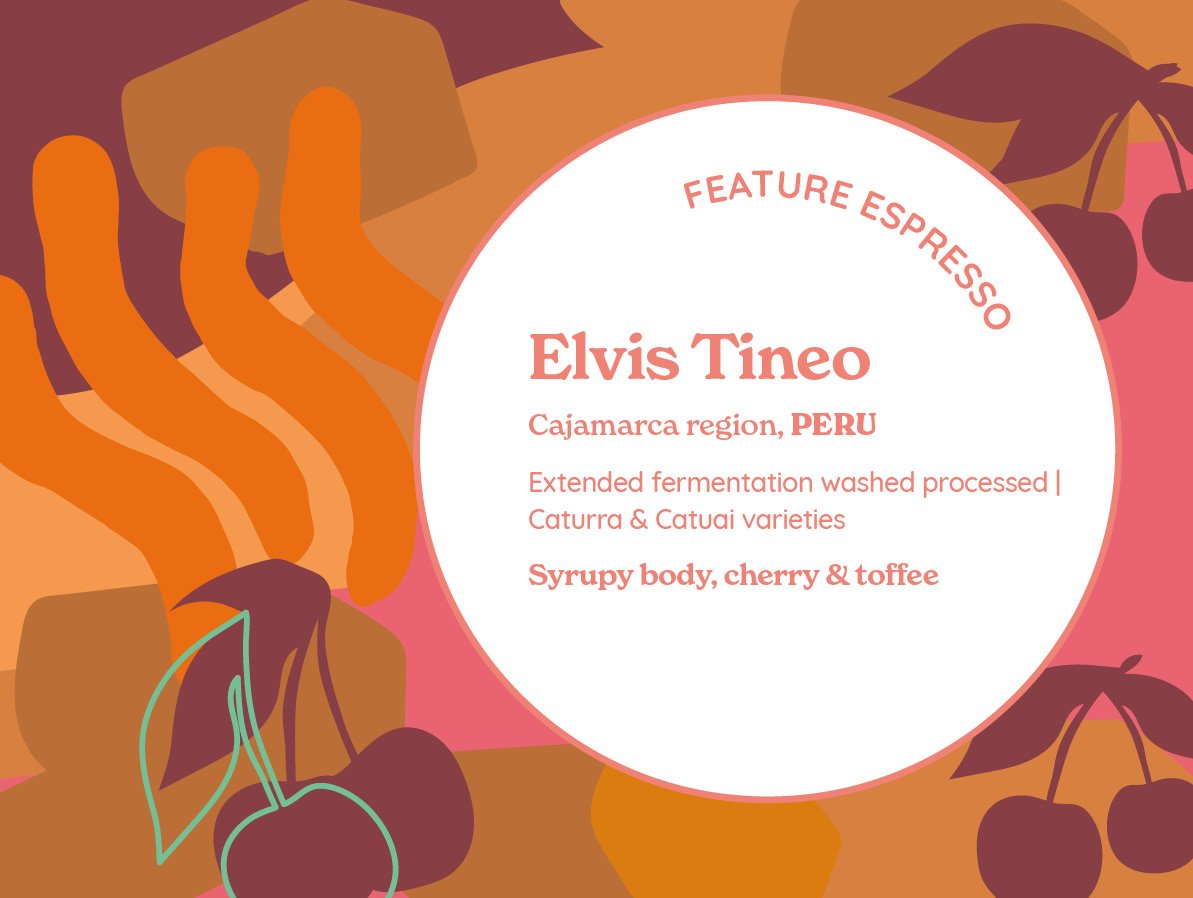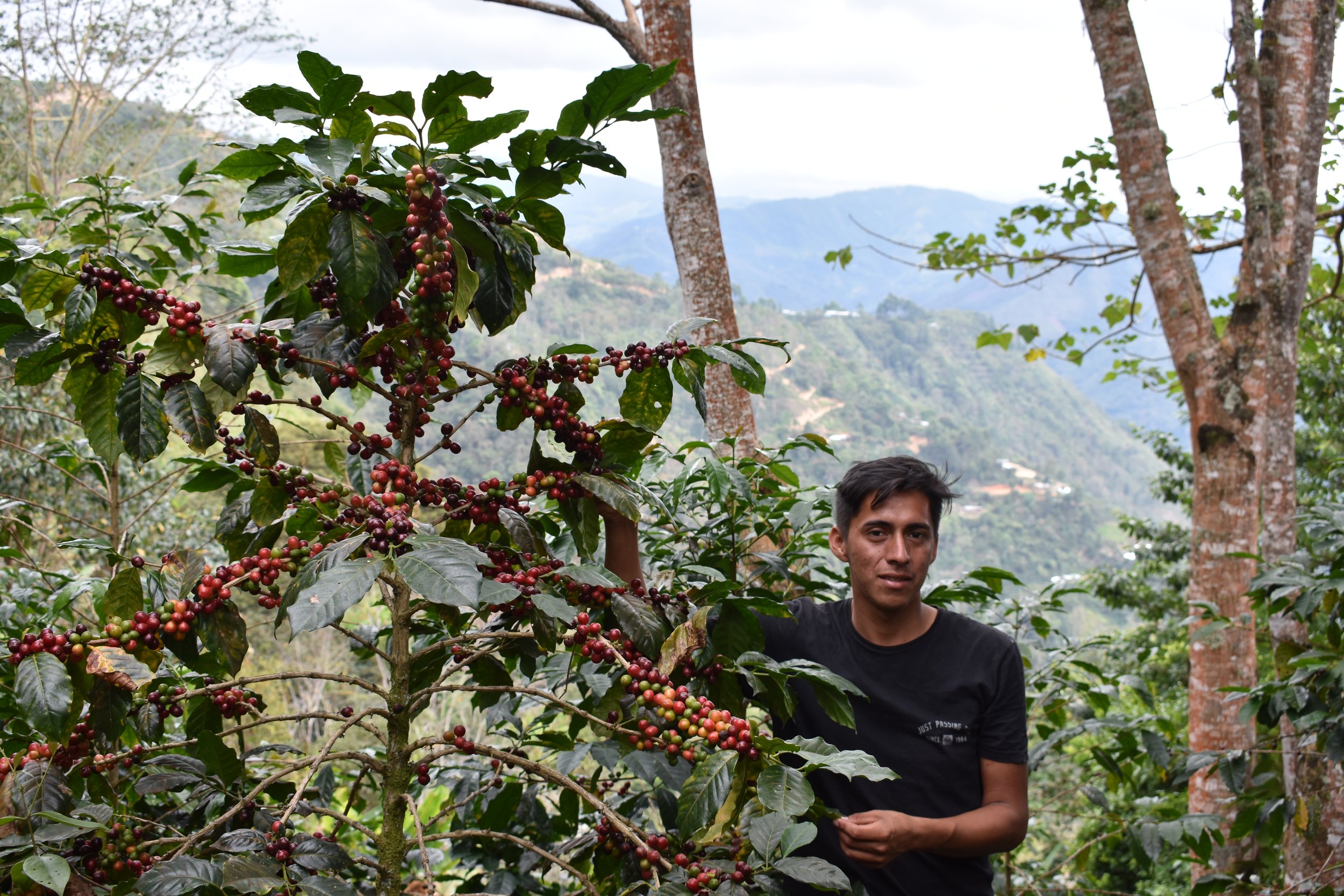Feature Filter: Elvis Tineo Rafel (Extended Fermentation Washed) | Peru
Key Origin Info:
Producer: Elvis Tineo Rafael
Processed at: Elvis’ own farm in El Diamante area
Region: Jaen, Cajamarca
Altitude: 1700 masl
Variety: Caturra & Catuaí
Process: Extended fermentation washed process (The coffee is rested in cherry for 1 day prior to de-pulping, followed by 1,5 -2 day fermentation in tank before washing and drying)
Exporter | Importer: Falcon Specialty
Cup profile: Syrupy & sweet, cherry & toffee
Purchasing history: 5 years
Elvis at his farm, with a Caturra coffee plant ready to pick. (2019)
More about Elvis:
Elvis Reinerio Tineo Rafael is a second-generation coffee producer from the El Diamante area overlooking the city of Jaen in Cajamarca, Northen Peru. Elvis and his family own around 12 hectares of land between them. Elvis himself owns and manages around 3 hectares, sitting between 1700 to 1900 masl. He is also the one focusing on processing and drying side of the production.
The land is planted mainly with with Bourbon, Caturra and Catuai varieties but more recently some new, rare varieties like Gesha and Centroamericano have also been added. The whole family work the land together, coordinating their picking, processing and drying and sharing their facilities.
El Diamante is a coffee producing area closest to the city of Jaen, main city in the Cajamarca coffee region. We had the privilege of visiting Elvis and his family at their beautiful farm and found out more about their coffee journey. As Elvis explained, coffee farming has been in the family for a long time, they used to produce mostly commercial quality coffees which they sold at the local market. Elvis took over the farm in 2016 and had pivoted toward the production of speciality grade coffee .
Elvis and his family has been working with Falcon Speciality (our exporting and importing partner for Peru) for the last five years. Not only being able to earn good price premiums for the quality of his coffee but also to benefit from the technical assistance and support from Falcon’s agronomy and sustainability team.
While his focus remains entirely on coffee, Elvis integrates sustainable farming practices, using a mix of organic and chemical fertilisers to enhance the health of his soil. Despite facing environmental challenges, Elvis continues the family tradition of coffee cultivation, a practice passed down through generations, and he remains proud of producing high-quality coffee for international markets whilst maintaining his family’s legacy.
His vision for the future is to make La Naranja a sustainable enterprise, continuing to grow and improve the quality of his coffee while honouring his family's legacy.
We’re so pleased to have Elvis’ coffee in the roastery for the fifth season running and it is tasting as delicious as ever.
Elvis’ Extended Fermentation Washed Process:
This particular lot is processed as a washed lot but with an extended fermentation compared to their usual way of processing.
After picking the cherries are first rested in sacks for a day before being de-pulped and dry fermented in plastic bags under shade for 1 and 1/2 to 2 more nights, checked regularly during this time to monitor progress depending on the weather and temperature. Once finished fermenting the coffee is then washed with clean water and laid out to dry on raised beds.
About Falcon Peru:
As Falcon explain:
In Peru, like some other origins, coffee farmers are sensitive to market changes and often lack basic training and the incentive to produce higher qualities of coffee, as premiums often don’t materialise. For these reasons we decided we needed to change the way we buy coffee in Peru and work directly with producers, allowing us to control and improve upon existing quality and have full financial traceability. Ensuring these two factors would help us to pay higher prices for the coffees and to make sure that producers received a fair price for the coffee they delivered us, above the market price. In order to do this, we set up a warehouse in Jaen and started to buy in parchment directly from producers.
The vision was to work directly with small producers who aren't associated with or able to sell their coffee through local cooperatives. They represent 75% of producers in Northern Peru and are usually based in remote areas with little or no access to training and price premiums adequate to the quality of coffee they are able to produce. This can leave their income often dependant on local aggregators who buy their coffee at farm for cash before selling it on which results in the producers being paid very little and the potential and quality of their coffee being lost.
Falcon's team on the ground in Peru, have established relationships and now work with around 300 small producers who bring their coffee in parchment directly to their warehouse where individual lots are graded, yield calculated and assessed for quality. Producers are then paid on the same day according to a transparent system (based on cup score and yield) and receive premiums well above the local market price. Aside from gaining access to a fair market, producers are also able to receive training on farm management, good harvest and processing practices.







